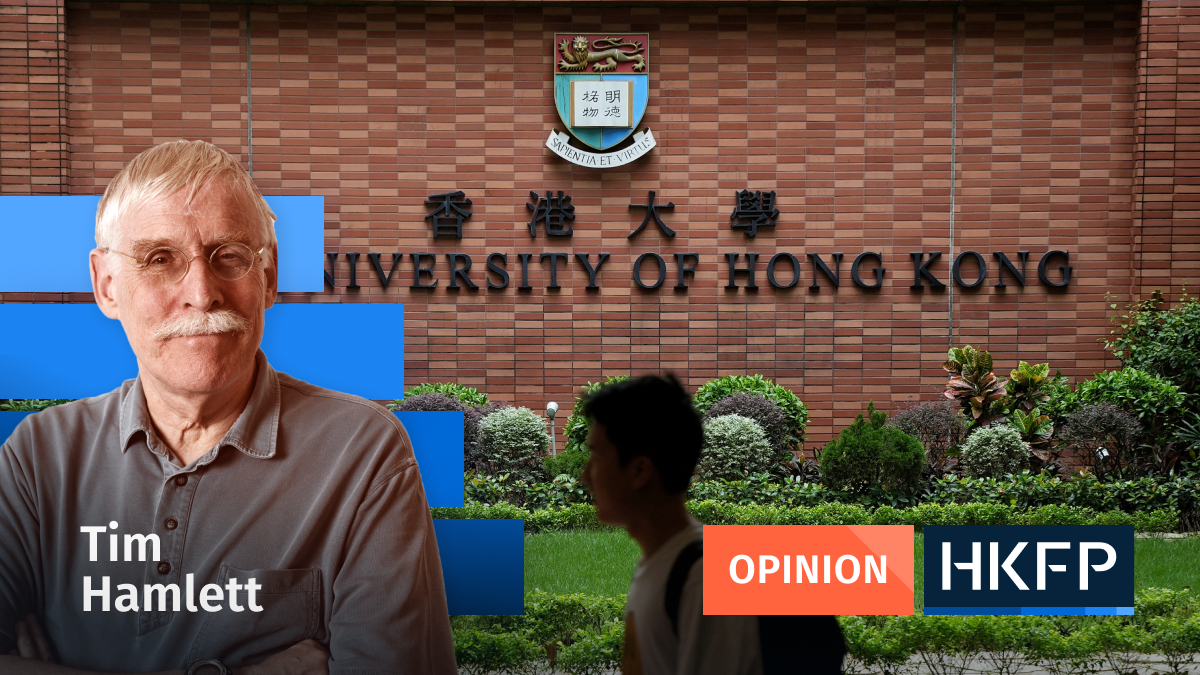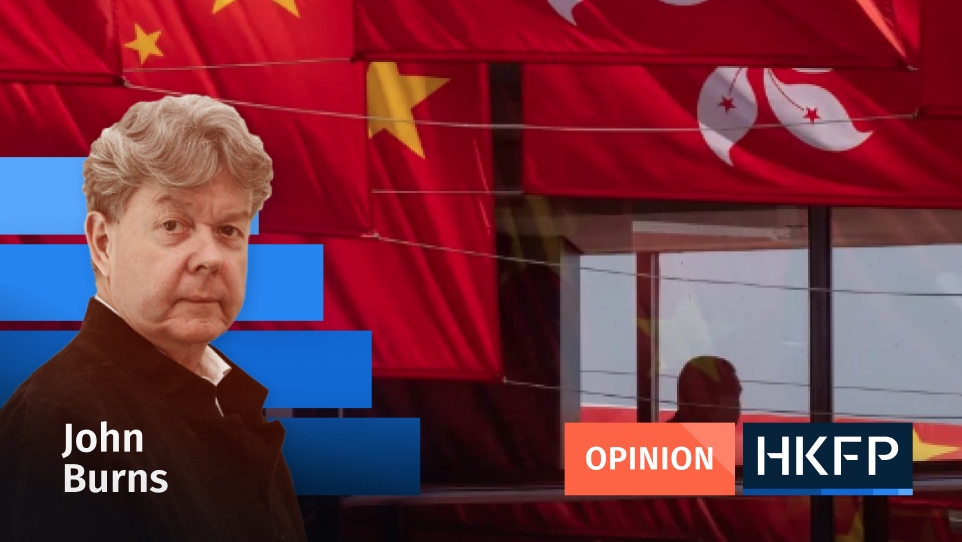The gentle purlieus of Hong Kong’s Anglican cathedral resounded to unaccustomed dissent last Sunday. The innovation which had some of the devout pouting in their pews was the addition of the national flag – I hope I do not need to say that this means China’s flag – to the usual ecclesiastical adornments.
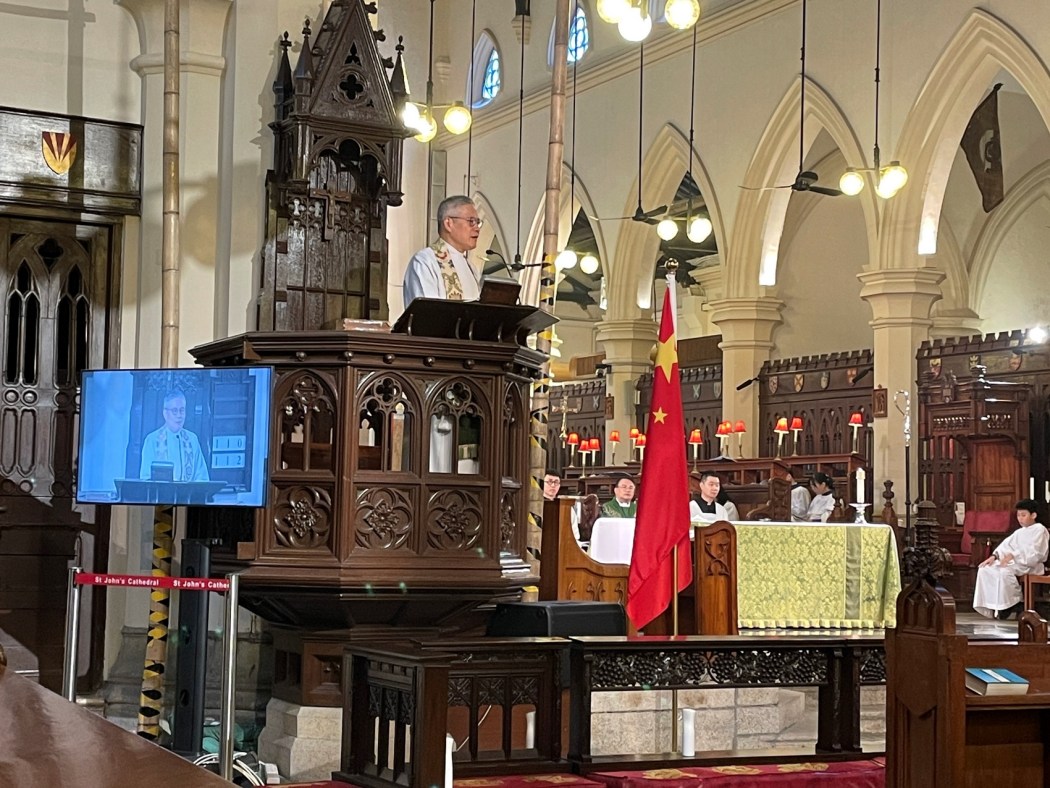
The flag was not exactly flown. It hung rather limply from a pole, but in a prominent position in front of the pulpit. The idea apparently came from one of our legislative puppets – I beg your pardon, poppets – Peter Koon, who combines the service of an avowedly atheist regime with a position of some consequence in local Anglican circles.
Bishop Matthias Der, presiding, was reported as saying that “We are here to pray for the country, and the flag is here to commemorate [National Day],” which could be considered a bit of an innovation.
Koon later said during the service: “If we were to display the British flag before 1997, would there be the same volume of debate online?… mainly it’s because we have some misunderstanding of our country.” But this opens up an interesting question. As far as we know the cathedral did not display the British flag before 1997. Why not?
After all the Anglican church has not exactly been known for taking a critical look at the powers that be. In fact ever since it was founded by Henry VIII as a contrivance for getting his royal paws on Anne Boleyn’s knickers, it has been notably willing to go along with whatever regime was running the country.
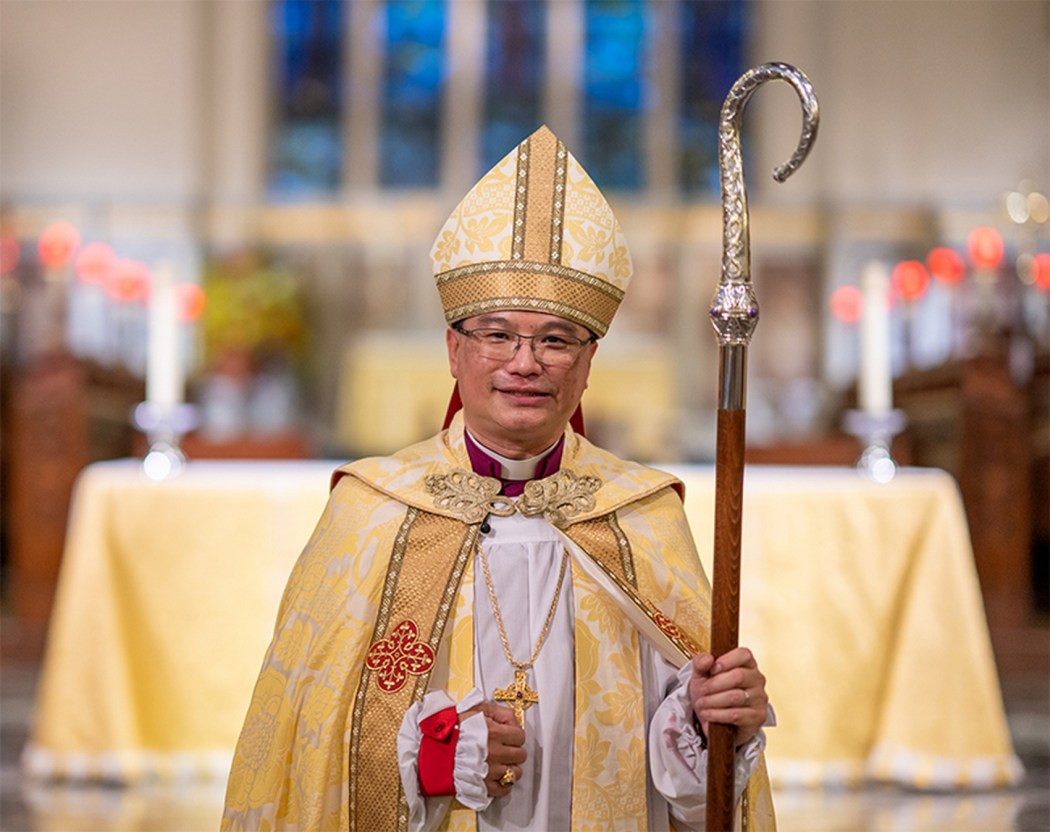
This stellar record of conformity is even celebrated in a satirical song, The Vicar of Bray, which can be found in a reasonably modern version, with subtitles, here. An interesting summary of the way the Book of Common Prayer has sought divine help for the ruling monarch and the British royal family here.
We must, in fairness, note that there is some biblical justification for this flexibility. The founding Christian said we should “render unto Caesar the things which are Caesar’s.” The early influencer later known as St Paul wrote that “the powers that be are ordained of God.”
We must also note that the Anglicans are not the only denomination with political problems. My father’s enthusiasm for Catholicism evaporated during World War II when he noticed that young men on both sides were being urged to kill each other by the same church.
But having accepted all these points in mitigation we are still left with the question: are there some places where it is not appropriate to wave the national flag and is perhaps a Christian church one of them?

This is not a matter of misunderstanding the country concerned. As Koon so delicately put it: “There is a period in every country that, if held to the scrutiny of modern standards, would require improvement.”
We do not choose our country. We have to try to cherish the one we are issued.
In most contexts there is nothing controversial about flying the national flag. Outside a government building it is, in many places, expected. I am afraid I was raised in a comparatively flag-free environment, where flags appeared only outside embassies and international hotels, but one gets used to local variations in this matter.
Some Americans take pride in raising and lowering the national flag in their front garden every day. German cities offer a confusing medley of flags because there is usually one for the city, one for the state and possibly one for the region, as well as the national effort.
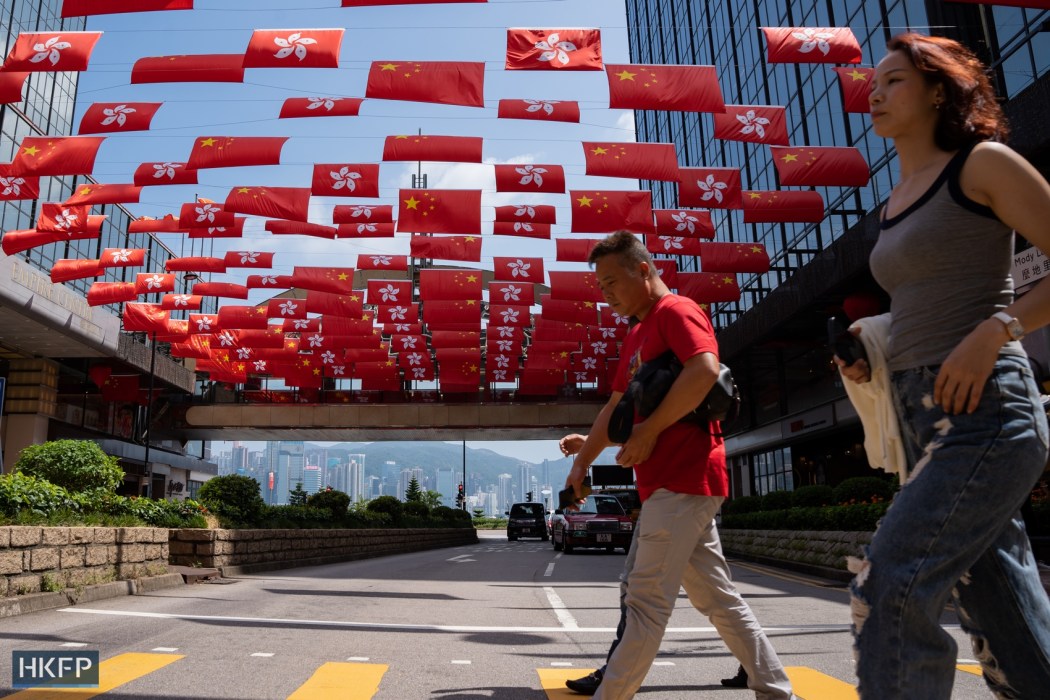
We must recognise, however, that although many of us may not take it very seriously, the flying of the flag is not a mere municipal adornment; it wordlessly communicates something. That is why loyalists who would like to see more people agree with them are encouraging places which did not previously display the flag to get the banner manner going.
Patriotism is a legitimate sentiment – we will leave Samuel Johnson out of this – but it is not a part of religion, and nor is it a part of rationality.
I felt some unease at reports that the Chinese University of Hong Kong was proposing not only to fly the flag on its buildings – an acceptable token of respect for the people who pay for them – but to have a flag guard. This was billed as part of the university’s effort to inculcate patriotism and other worthy urges in its students.
I understand that this particular university has been under some pressure because of the perception in left-wing circles that it is not entirely committed to the new regime and the version of history which goes with it. Still, all this seems dangerously at variance with what should be the university’s primary mission, which is the pursuit of truth through the use of reason. This is not compatible with having a body of doctrine which students are expected to adopt uncritically and without question.
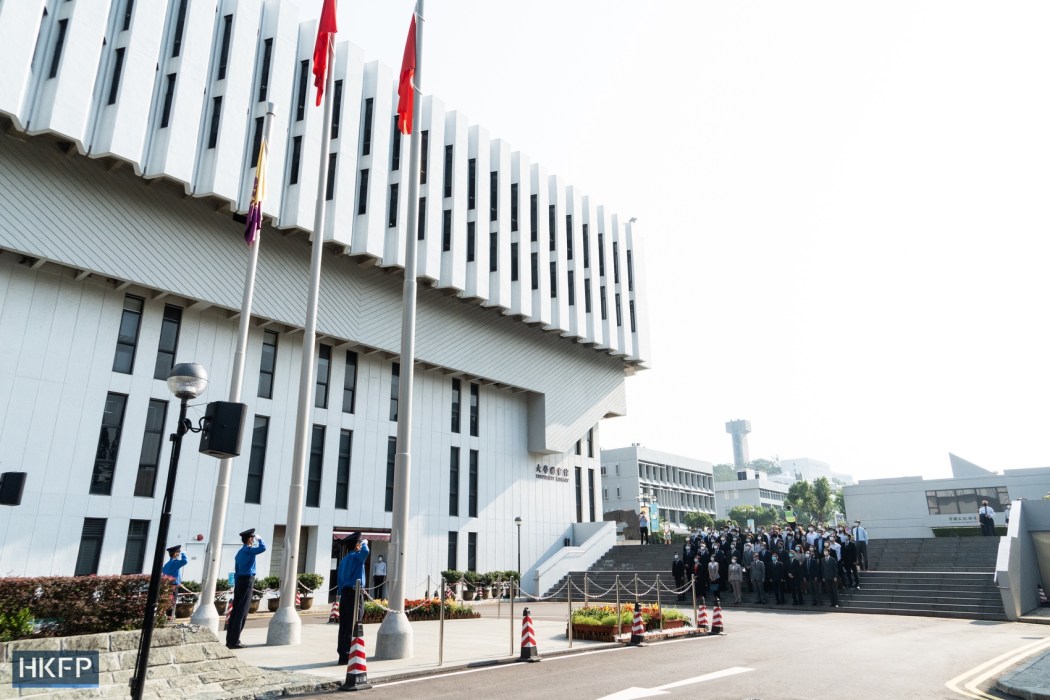
You have to wonder, also, whether now that national education is cropping up everywhere from kindergarten to high school there is really a need to inflict it on university students as well. Surely they will have got the message, if they are ever going to get it?
Flying the flag from a cathedral pulpit raises similar questions. I hesitate to write anything about religion, which is not one of my hobbies, but surely people do not go to church to pray for the country, though they may throw in prayers for a variety of worthy causes while the call is in progress, as it were.
People go to church to pray for salvation and forgiveness, I would have thought, to worship and to share the hope of eternal life and other unlikely eventualities.
Clergy members who wish to offer spiritual guidance need to know where their boundaries are. We may all need instruction in the comparative merits of various national histories. But this had better not come from them.
Support HKFP | Policies & Ethics | Error/typo? | Contact Us | Newsletter | Transparency & Annual Report | Apps
| HKFP is an impartial platform & does not necessarily share the views of opinion writers or advertisers. HKFP presents a diversity of views & regularly invites figures across the political spectrum to write for us. Press freedom is guaranteed under the Basic Law, security law, Bill of Rights and Chinese constitution. Opinion pieces aim to point out errors or defects in the government, law or policies, or aim to suggest ideas or alterations via legal means without an intention of hatred, discontent or hostility against the authorities or other communities. |
Help safeguard press freedom & keep HKFP free for all readers by supporting our team

HKFP has an impartial stance, transparent funding, and balanced coverage guided by an Ethics Code and Corrections Policy.
Support press freedom & help us surpass 1,000 monthly Patrons: 100% independent, governed by an ethics code & not-for-profit.



